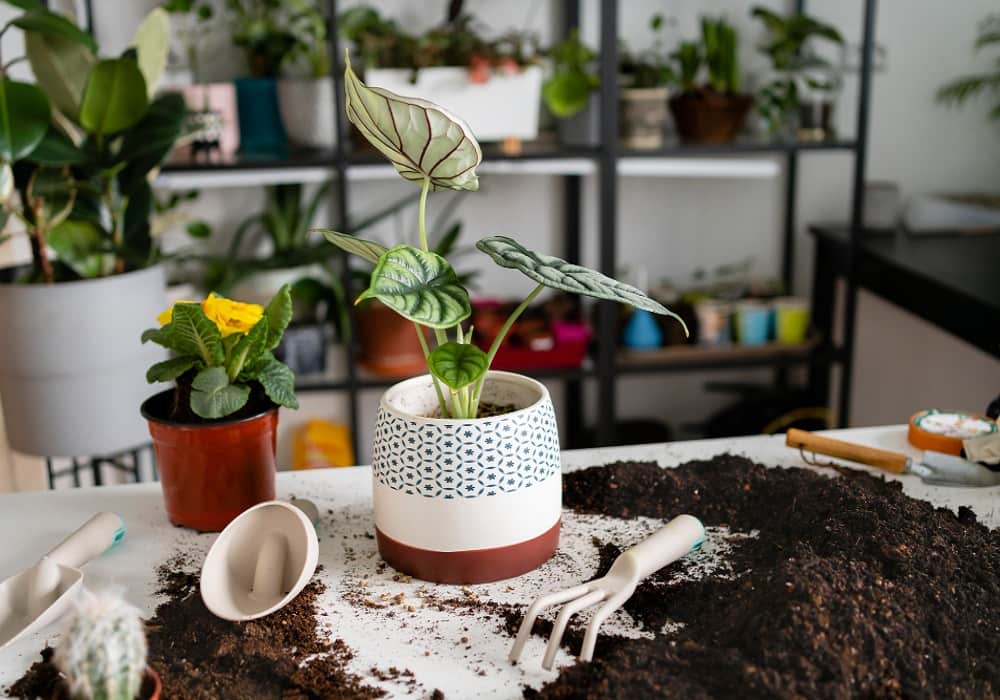Gardening for Beginners in India: Easy Tips to Start Your Green Journey
Gardening is an immensely fulfilling hobby, particularly in India, where the climate and rich diversity of plants present unique opportunities. Whether you have a large backyard or a modest balcony, embarking on a gardening project can introduce joy and a profound sense of achievement. If you are just beginning, fear not! This guide on “gardening for beginners in India” aims to facilitate your journey into the world of plants.
1. Assess Your Space and Climate
Before commencing your gardening endeavors, evaluate the space available to you. Understanding whether you have a terrace, balcony, or garden will influence the types of plants suitable for your environment.
India’s climatic diversity ranges from tropical in the south to arid in Rajasthan and temperate in the north. Select plants that flourish in your locality. For instance:
- Tropical Regions: Banana, papaya, and hibiscus.
- Temperate Zones: Apples, peaches, and tulips.
- Arid Climates: Aloe vera, cacti, and succulents.
2. Select Beginner-Friendly Plants: Gardening for beginners tips
As a gardening novice, choose plants that are easy to cultivate and require minimal upkeep. Some suitable options for beginners in India are:
- Vegetables: Tomatoes, spinach, chilies, and beans.
- Herbs: Basil, mint, coriander, and curry leaves.
- Flowers: Marigold, zinnia, and sunflower.
These plants are resilient, adapt well to varying conditions, and yield quick results to keep you motivated.
3. Acquire Essential Tools
To embark on your gardening journey, consider investing in some essential tools:
- Gloves: Safeguard your hands from soil and thorns.
- Trowel: Useful for digging and planting.
- Pruning Shears: Ideal for trimming plants and removing dead branches.
- Watering Can: Crucial for consistent and controlled watering.
Quality tools enhance the gardening experience by making it more efficient and enjoyable.
4. Prepare Nutrient-Rich Soil
Soil forms the foundation of a flourishing garden. Indian soils, such as black soil in Maharashtra or red soil in Tamil Nadu, have distinct qualities. To enrich your soil:
- Add organic compost or manure to provide nutrients.
- Ensure proper drainage, as most plants dislike waterlogging.
- Utilize potting mix if planting in containers to enhance aeration.
Nutrient-rich soil is essential for promoting healthy plant growth.
5. Begin with Container Gardening
For beginners, container gardening is a practical way to start. You may utilize pots, old buckets, or even plastic bottles. Ensure that your containers:
- Include drainage holes to prevent root rot.
- Are appropriately sized for the intended plants.
- Are positioned in areas receiving adequate sunlight.
Container gardening offers flexibility and allows for easy movement of plants.
6. Master Watering Techniques
Overwatering is a prevalent mistake among novice gardeners. Most plants prefer moist soil rather than excessively soggy conditions. Here are some tips:
- Water early in the morning to minimize evaporation.
- Check soil moisture prior to watering by inserting a finger an inch into the soil.
- Use a spray bottle for delicate plants and seedlings.
Effective watering practices promote healthy plant growth while conserving resources.
7. Utilize Organic Fertilizers
Chemical fertilizers may adversely affect plants and the environment. Instead, consider organic alternatives such as:
- Kitchen Waste: Banana peels, eggshells, and coffee grounds.
- Cow Manure: Easily accessible in rural areas.
- Neem Cake: Serves as both a fertilizer and pest deterrent.
These eco-conscious fertilizers enhance soil fertility and promote robust plant health.
8. Manage Pests Naturally
Gardening in India often involves pest challenges, such as aphids, mealybugs, and caterpillars. Natural solutions include:
- Spraying a neem oil and water mix on plants.
- Utilizing companion plants (e.g., marigolds to deter nematodes).
- Attracting natural predators like ladybugs and birds.
This proactive method helps maintain healthy plants without chemicals.
9. Understand Sunlight Needs
Most plants require 4-6 hours of sunlight each day. Position your garden to optimize light:
- For balconies, place pots near sunny railings or walls.
- In shaded spots, grow shade-tolerant plants like ferns and peace lilies.
- Rotate pots periodically for balanced light exposure.
Appropriate sunlight enhances photosynthesis and plant growth.
10. Be Patient and Consistent
Gardening is a gradual process requiring patience. Plants need time to develop, so provide regular care like watering, pruning, and weeding to help your garden thrive. Monitor your plants daily to spot early signs of issues.
Bonus Tips for New Gardeners in India
- Utilize Local Resources: Check local nurseries for advice and native plant choices.
- Embrace Eco-Friendly Practices: Repurpose materials such as old jars for planters and collect rainwater for watering.
- Engage with Gardening Communities: Online forums and local groups provide helpful support and insights.
Conclusion
Starting your journey in gardening for beginners in India is a rewarding way to connect with nature and enhance well-being. By beginning small, understanding your environment, and consistently caring for your plants, you’ll soon cultivate a thriving green space. Remember, each plant you nurture adds beauty and positivity to your surroundings. Happy gardening!






